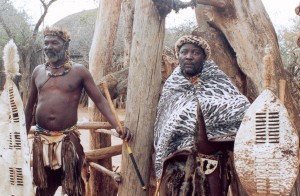The Tourism BEE Charter and Scorecard was established by the Department of Environmental Affairs and Tourism as part of the integrated socio-economic strategy outlined by the Broad-Based Black Economic Empowerment Act no. 53 of 2003. The act is orientated towards mitigating the socially detrimental effects of Apartheid and its continuing legacy, and therefore aims to include all South Africans in an active and meaningful engagement in the national economy and the land for sale in South Africa. The Charter summarises the BEE policy as follows:
Black economic empowerment (BEE) is defined as an integrated and coherent socio-economic process that directly contributes to the economic transformation of South Africa and brings about significant increases in the number of black people that manage, own and control the country’s economy, as well as significant decreases in income inequalities.
In terms of the BEE Act of 2003, each government department is mandated to implement the policy as part of its own individual social and economic policies. The Department of Environmental Affairs and Tourism created The Tourism BEE Charter in accordance with the BEE strategy, and aims to not only make South African tourism globally competitive, but to open the benefits of tourism to previously disadvantaged peoples; tourism BEE should, therefore have a direct impact on elements as diverse as accommodation in Durban to B&Bs in quaint tourist towns. In its attempt to empower black South Africans and transform a racially unequal economy, the Tourism Charter has identified key areas in which to focus transformation guidelines. The key areas identified include: black ownership; black representation at managerial levels; employment equity; skills development; preferential procurement for black owned enterprises; enterprise development; and social/community development.
Although the Charter can be seen to attempt to redress the racially unequal ownership of enterprises within the tourism sector, it is also directed towards creating a tourism friendly culture across all of South Africa’s diverse peoples, and, in contradistinction to historical trends, aims to develop a tourist culture amongst black South Africans. The opportunities that may arise when travelling within your own country might prove to be profitable discoveries. Who knows, when next touring the Cape you might decide that Claremont property is a great investment and an inflation beating asset to hold!
The Charter is designed to include all privately owned enterprises within the sector, which can be divided up as follows: accommodation (all hotels, bed and breakfasts, game lodges, backpackers, etc.); hospitality and related services (restaurants, catering services, conference facilities, etc.); and travel distribution systems (travel agents; tour wholesalers; tour operators; coach operators, etc.). The travel insurance sector should also benefit from increased tourism-related activities.
With its aim to include all South Africans in the Tourism sector, and make black South Africans feel that they are welcome to explore the country in which they live, it is the responsibility of all South Africans to buy a camera (or nowadays we can instead buy a tablet PC!), map, a comfortable pair of shoes and head out to support this important local industry.
